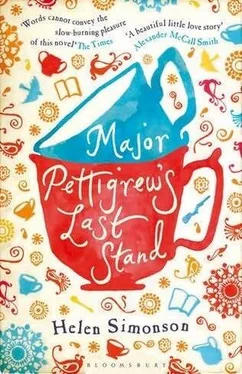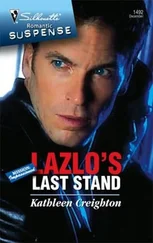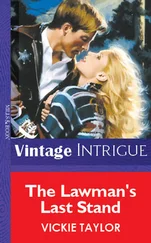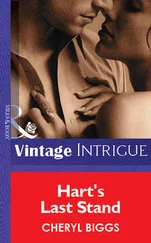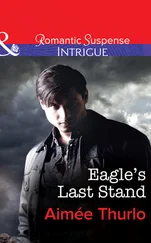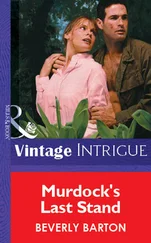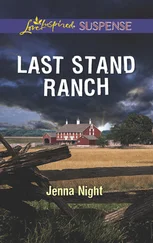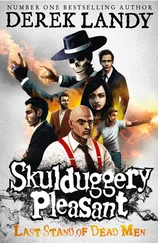“Good heavens no, no, thank you,” he said. The old woman glared at him. She was evidently able to knit and glare at the same time, as there was no pause in the furious clicking of her needles. Abdul Wahid, appearing from the back, greeted him rather coldly and introduced the woman as one of his great-aunts.
“Pleased to meet you,” lied the Major. She inclined her head, but her smile retracted itself almost at once into a pursing of the lips that seemed her usual expression.
“She doesn’t speak much English,” said Abdul Wahid. “We have only just persuaded her to retire here from Pakistan.” He retrieved a plastic bag from under the counter. “I am glad you came in. I have been asked to return something to you.” The Major looked in the bag and saw the little volume of Kipling poetry that he had given Mrs. Ali.
“How is she?” asked the Major, hoping not to betray any urgency in his voice. The aunt released a torrent of language at Abdul Wahid, who nodded and then smiled apologetically.
“We are all very nicely settled, thank you,” he said and his voice continued to brick up a barrier of cold and indifference between them. The Major could find no crack of warmth on which to turn the conversation. “My auntie wants to know what we can get for you this morning.”
“Oh I don’t need anything, thank you,” said the Major. “I just popped in to-er-see the decorations.” He waved his hand toward an extra-large round paper ball topped with the flat outline of a winking girl with fat lips and an elf hat. Abdul Wahid blushed, and the Major added: “Of course, there can be no question of excess where there is commercial imperative.”
“I will not forget your hospitality this autumn, Major,” said Abdul Wahid. His voice at last offered some hint of recognition, but it was combined with an unanswerable finality, as if the Major were also planning on leaving the village forever. “You were very kind to extend your assistance to my family and we hope you will continue to be a valued customer.” The Major felt his sinuses contract and tears begin to well at the loss of connection even to this strange and intense young man. A lesser man might have grabbed for his sleeve or uttered a plea for-he supposed he had become used to Abdul Wahid’s presence, if not his friendship. He dove in his pocket for a handkerchief and blew his nose loudly, apologizing for his lingering cold. The auntie and Abdul Wahid both drew back from the invisible menace of his germs and he was able to escape the shop without embarrassing himself.
Christmas was still present, he hoped, in the church, where he went one morning to lend some carved wooden camels for the crèche by the altar, as his father had begun doing many years ago. It was a ritual to unpack them from their tea chest in the attic, to unwind their linen wrappings, and to give the cedar a light rub with beeswax.
The church was blissfully bare of any manufactured decoration. The simple crèche was supplemented by two brass urns of holly flanking the altar and an arrangement of white roses draping the font. Handmade cards from the church school hung from wooden pegs on a line strung across the aisle. Still tired from his cold, the Major dropped into the front pew for a few moments of quiet reflection.
The Vicar, emerging from the sacristy with a handful of leaflets, gave a small start-almost a hesitation-and then walked over to shake hands.
“Brought the dromedaries, I see,” he said and sat down. The Major said nothing but watched the sunlight pour across the ancient flagstone floor and light up the dust motes. “Glad to see you out and about,” the Vicar went on. “We heard you were laid up after the dance, and Daisy kept meaning to check on you.”
“Entirely unnecessary and so no apologies required, Vicar,” said the Major.
“Bit of a shambles, that dance,” said the Vicar at last. “Daisy was very upset.”
“Was she?” said the Major in a dry tone.
“Oh, she worries about everyone so much, you know,” said the Vicar. “She has such a big heart.” The Major looked at him, astonished. Such touching delusion must underlie many otherwise inexplicable marriages, he thought, and liked Christopher all the better for loving his wife. The Vicar took an obvious deep breath.
“We heard that Mrs. Ali has moved away to be with family?” His eyes were nervous and probing.
“That’s what I’m told.” The Major felt a choke of misery rise into his voice. “There was nothing to keep her here.”
“It’s good to be with family,” said the Vicar. “Among your own people. She’s very lucky.”
“We could have been her people,” said the Major in a low voice. There was a silence as the Vicar shifted his bottom on the hard pew. He opened his mouth a few times, to no effect. The Major watched him struggle like a fly with one leg in a cobweb.
“Look, I’m as ecumenical as the best of them.” The Vicar set his hands in his lap and looked at the Major directly. “I’ve done my share of blessings for mixed-faith couples and you’ve attended our inter-faith festival yourself, Major.”
“The Jamaican steel band was a nice touch,” said the Major in an acid tone. The parish had seemed, for many years, oblivious to the fact that hymn singing in the village hall with the local Catholic church might not encompass the full range of world faiths. More recently the Vicar had tried to broaden the welcome, against some stiff opposition. Alec Shaw had suggested adding a Hindu speaker this past year. They had been led in a couple of chants and basic arm stretches by a lady yoga instructor who was a friend of Alma’s and who had learned all about Hinduism while staying in India with the Beatles in the 1960s. The world’s major faiths had also been represented by paintings of foreign children done by the Sunday school and the aforementioned reggae entertainment.
“Don’t laugh,” said the Vicar. “People loved those chaps. We’re inviting them back for the fête next summer.”
“Perhaps you could have invited Mrs. Ali,” said the Major. “Put her in charge of the tombola.”
“I know you feel you’ve lost-a friend,” said the Vicar, hesitating over the word, as if the Major had been engaged in a steamy affair. “But it’s for the best, believe me.”
“What are you saying?”
“Nothing, really. All I’m trying to tell you is that I see people get into these relationships-different backgrounds, different faiths, and so on-as if it’s not a big issue. They want the church’s blessing and off they go into the sunset as if everything will be easy.”
“Perhaps they’re willing to endure the hostility of the uninformed,” said the Major.
“Oh they are,” said the Vicar. “Until it turns out the hostility is from Mother, or Granny cuts them out of the will, or friends forget to invite them to some event. Then they come crying to me.” He looked anguished. “And they want me to promise that God loves them equally.”
“I take it he does not?” said the Major.
“Of course he does,” said the Vicar. “But that doesn’t mean they’ll both be saved, does it? They want me to promise they’ll be together in heaven, when the truth is I can’t even offer both a plot in the cemetery. They expect me to soft-pedal Jesus as if he’s just one of many possible options.”
“Sort of like a cosmic pick-and-mix?” said the Major.
“Exactly.” The Vicar looked at his watch, and the Major got the distinct impression that he was wondering whether it was too early for a drink. “Often, I think, they don’t believe in anything at all and they just want to prove to themselves that I don’t really believe anything either.”
“I’ve never heard you talk like this, Christopher,” said the Major. The Vicar looked a little sick, as if he might already be regretting the outburst.
Читать дальше
